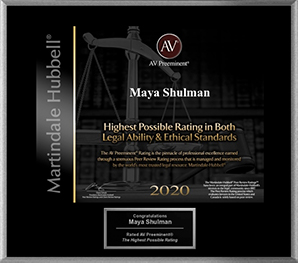
Child custody cases and processes can be quite stressful and overwhelming to both parents and children in such situations. It is easy to believe what people say without really understanding it or trying to research the source of the information people give you. This feeds into myths and makes them stronger, while giving you misconceptions about how child custody cases work.
Common Myths About Child Custody Laws and Cases
To ensure you have the right information about child custody, here are a few myths that you should be aware of, as well as the reality to counter these common myths:
Myth: Mothers are more likely to get custody than fathers
This is, possibly, the most common misconception when it comes to child custody cases. Most people assume that if a couple is fighting for custody rights in court, the rights will almost always be awarded to the mother rather than the father.
The truth is, as far as family courts are concerned, gender is irrelevant when deciding who get custody of children. In many cases, mothers get custody simply because the fathers are less prepared with evidence and presentation of their side of the case.
Myth: Teenagers get to decide which parent they live with
This is only partially true. Children over 14 years of age, if they have a preference, can voice those preferences in court during child custody cases. It is, however, up to the Court to make a decision on who gets custody of the child, while keeping the preferences of the child in consideration.
Teenage kids do not have any rights to decide which parents get custody. The Court may or may not agree with the child’s preference, and will come to a decision based on evidence presented by both parties in the case.
Myth: You can get away with false abuse allegations in family courts
In acrimonious cases, where the spouses are not in talking terms or no longer like their spouses, there is a chance that they may try to tilt the decision for custody in their favor by leveling allegations of abuse, alienation, and neglect on the other parent.
It is important to remember that if such allegations are proven to be false in court, the alleging party can not only be fined, but they can also lose custody and their right to appeal for falsifying evidence and lying in court.
Myth: Working parents have less chances of getting custody of children
A working parent will obviously have less time for the child. However, the relevance of this point reduces once the child reaches schooling age and can be left at child care centers after school. Also, the non-working parent may be expected to step up, take up a job, and help provide for the child.
A big reason working parents get awarded custody less often is because they usually have less time than non-working parents to prepare for the case. They may not always have all their evidence in place on time, and may not be able to put in the hours required to prepare for such cases. The statistic has nothing to do with bias against working parents.
Myth: Social media information is inadmissible as evidence in child custody cases
Information from social media accounts of the parents and children in question is admissible in family court, as long as it is obtained legally. Such information can be used as evidence to prove a point, debunk allegations, or enhance credibility.
If you are fighting a child custody case in court, ensure that you have the right attorney representation, one who is sufficiently experienced in handling custody cases and can present your side of the case simply, effectively, and succinctly.
SFLG
Shulman Family Law Group







